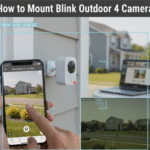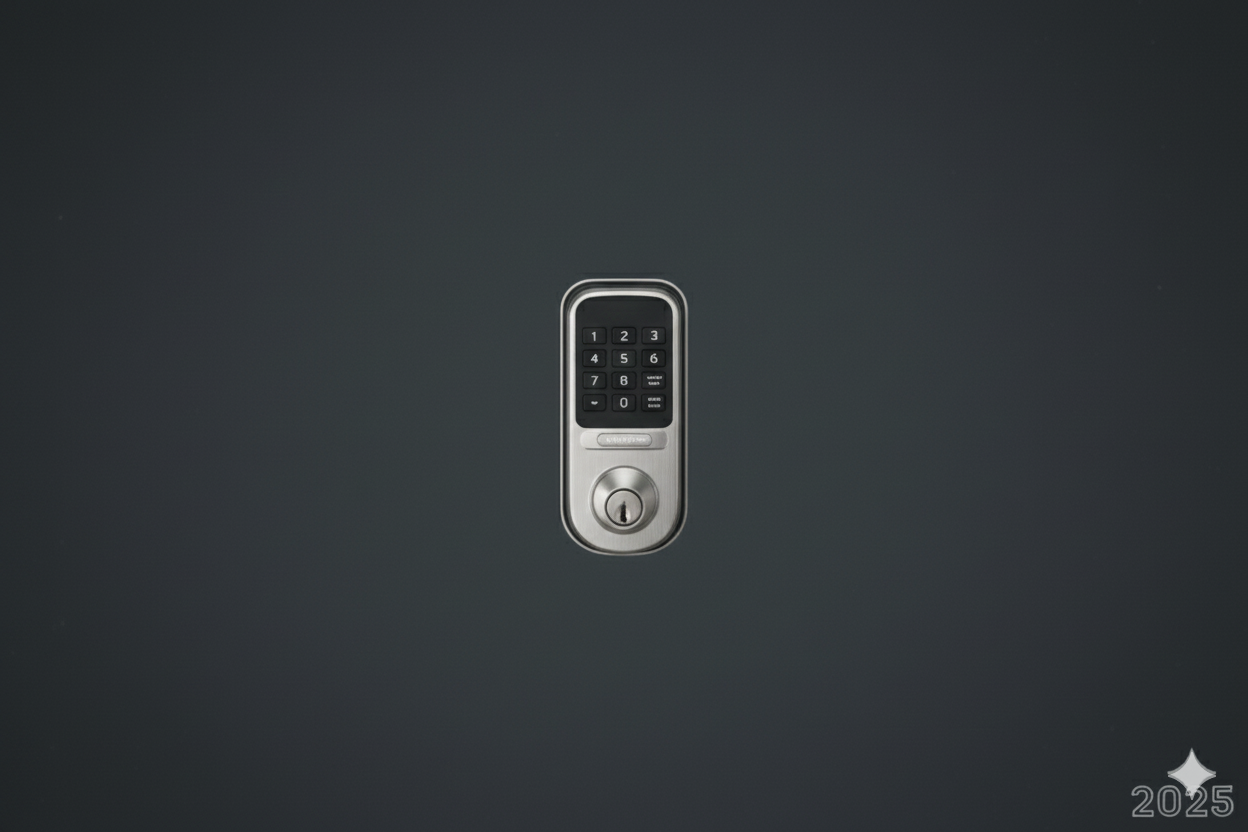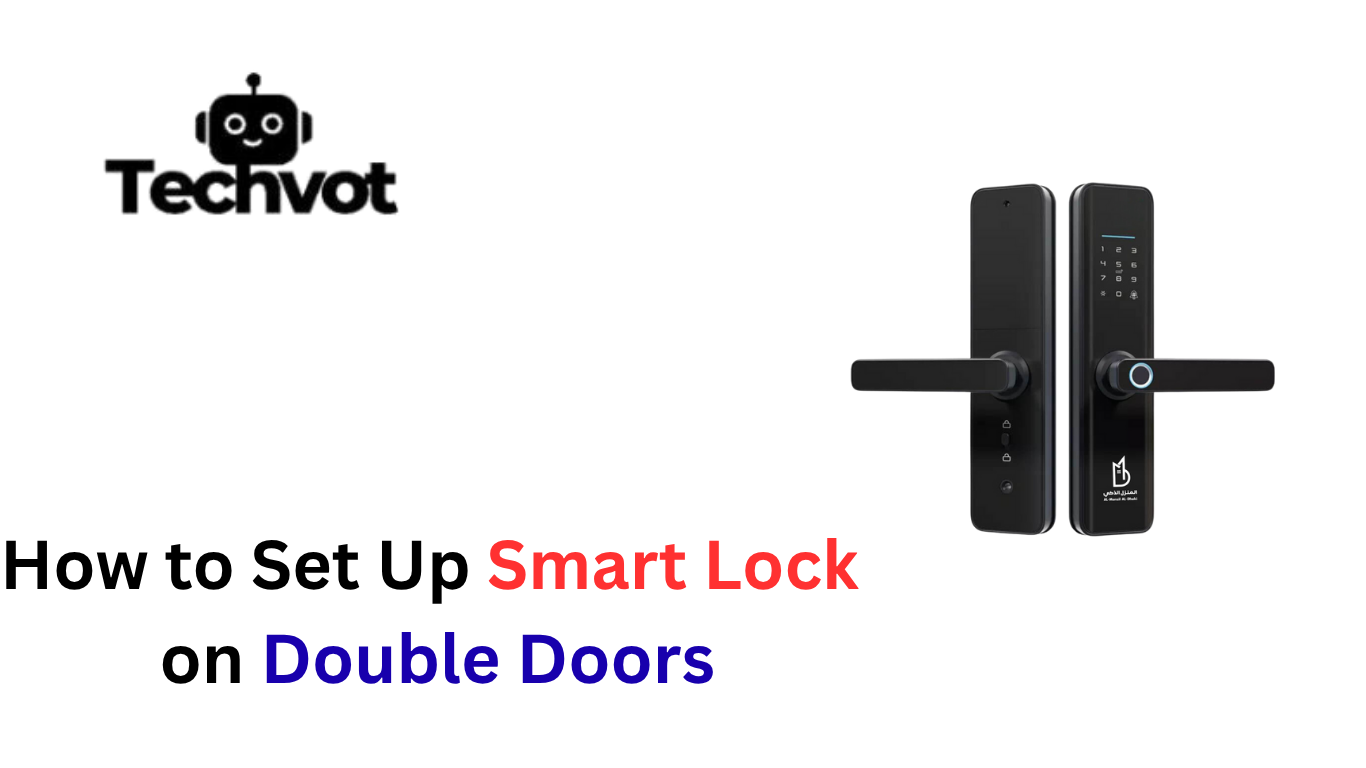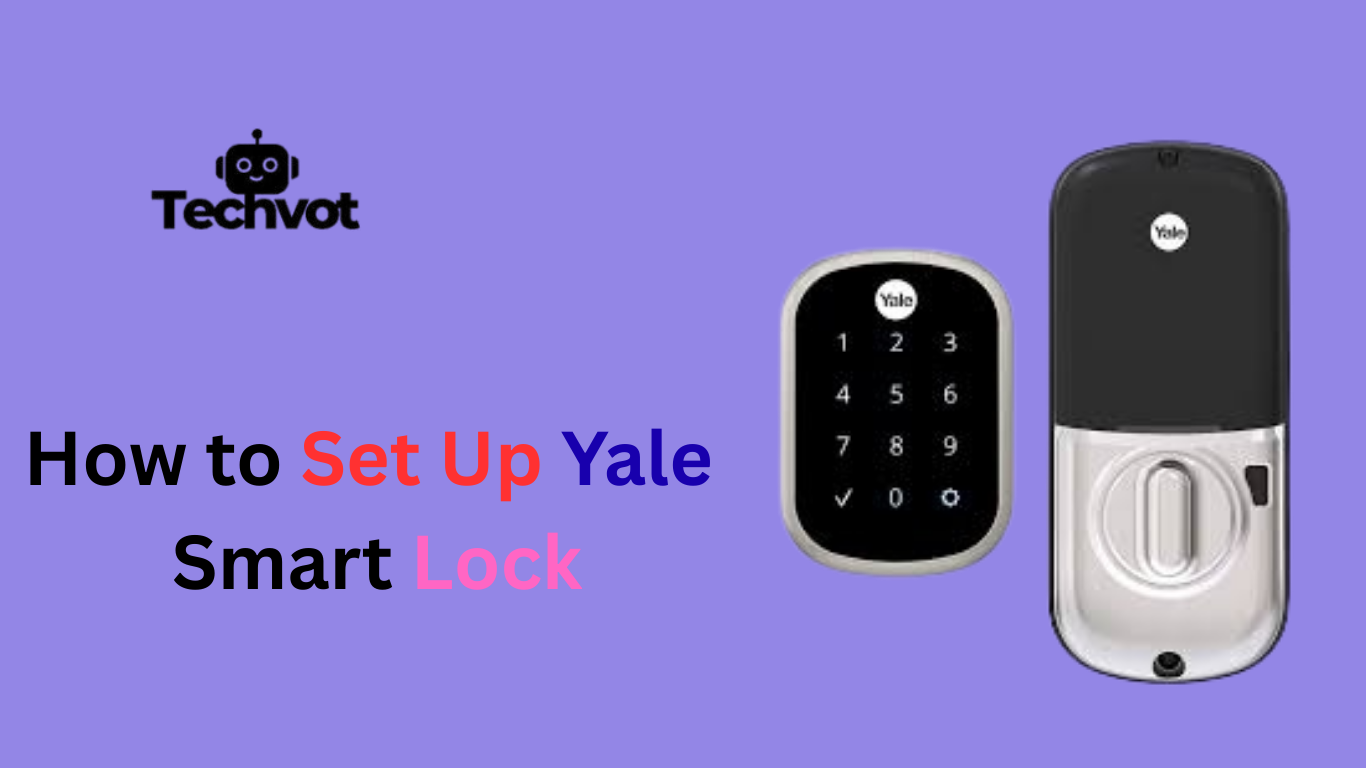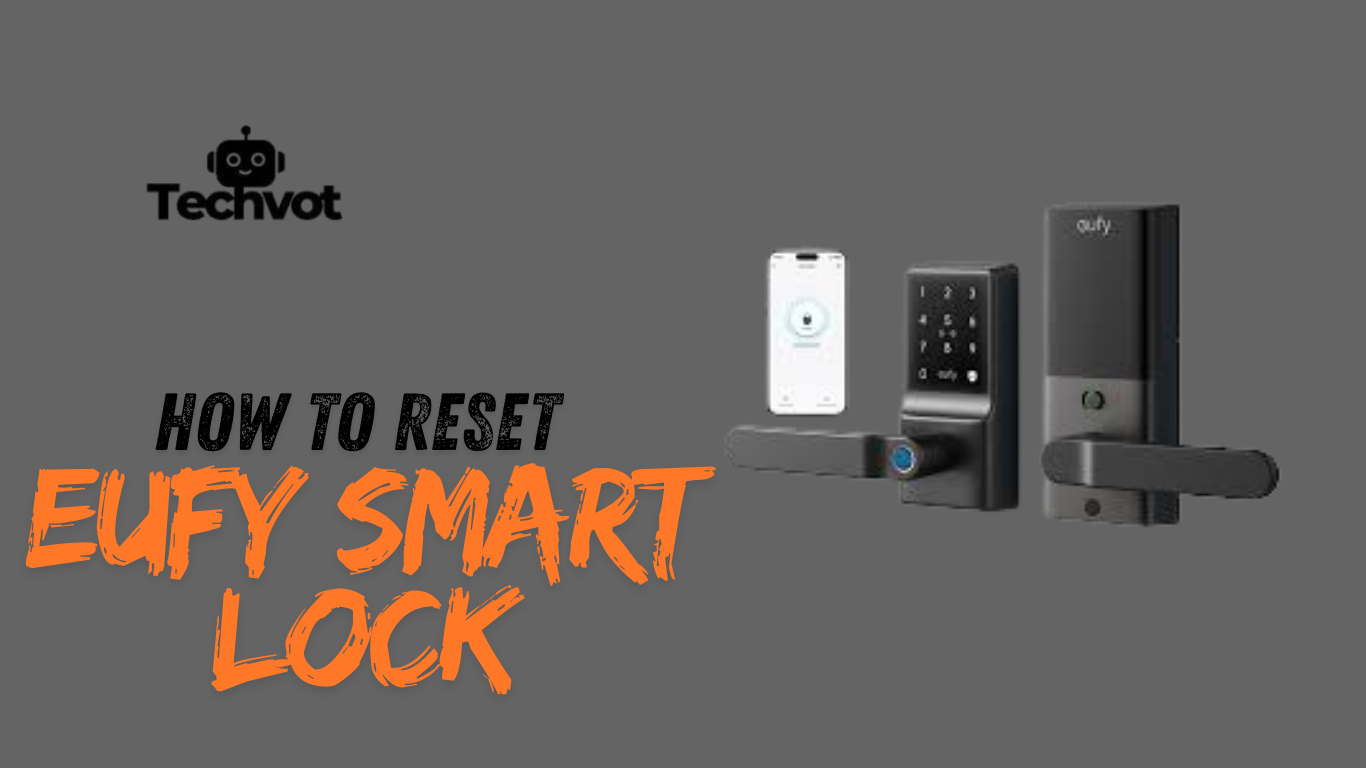Smart locks are quickly becoming a popular upgrade in modern homes, offering a convenient and secure alternative to traditional keys. With keyless entry, remote access, and mobile app control, smart locks make it easier to manage who can enter your home and when. With access records and real-time alerts, smart locks provide peace of mind whether you’re at home, at work, or on vacation. They’re also great for families, renters, and Airbnb hosts who need flexible entry options.
What Benefits Do Smart Locks Offer for Home Security?
- Enhanced security: Uses advanced encryption and digital access, making it harder to pick or duplicate compared to traditional locks.
- Keyless entry: Eliminates the risk of lost or stolen keys, offering convenience and peace of mind.
- Remote control: Lock or unlock your door from anywhere using a smartphone, perfect for forgetting to lock up or letting in guests.
- Access logs: Track who enters and exits your home, with detailed activity history for added security.
- Temporary or scheduled access: Grant time-limited entry for guests, cleaners, or delivery personnel without sharing permanent keys.
- Integration with home security systems: Works with alarms, cameras, and smart home devices for full home monitoring.
- Alerts for unusual activity: Receive notifications if suspicious access is detected, giving you immediate awareness.
- Convenience and control: Combines security with smart technology, making it a practical and modern investment for connected homes.
Key Features to Look for in a Smart Lock
When choosing a smart lock, it’s important to consider the features that best suit your home and lifestyle. Here are the most important ones:
Options for Keyless Entry
Smart locks should offer multiple unlocking ways, such as PIN codes, smartphone apps, or fingerprint scanners. This provides flexibility and convenience, especially when carrying groceries or not wanting to carry physical keys.
Remote Access and Control
A quality smart lock should allow you to lock or unlock your door from anywhere via a mobile app. This is particularly useful if you travel frequently or need to let someone in while you’re away.
Auto-Locking Feature
An auto-lock function ensures your door locks itself after a set time. This adds an extra layer of security, especially for forgetful users.
Activity Monitoring
Look for smart locks that track who comes and goes. This is helpful for parents, Airbnb hosts, or anyone managing home access.
Battery Life and Backup Options
Since smart locks run on batteries, choose one with a long battery life and emergency power options like a key or external charging port.
How to Use Your Phone to Interact with Smart Locks
One of the greatest benefits of contemporary home security is the ability to operate a smart lock from your phone. Most smart locks connect to your phone through a dedicated mobile app provided by the lock’s manufacturer. After installing the app, you’ll need to pair your lock using Bluetooth, Wi-Fi, or Z-Wave, depending on the model. Once connected, you can lock and unlock your door with a tap.
Many apps also allow you to set up PIN codes for family or guests, monitor access logs, and receive notifications whenever someone enters or exits. If your smart lock supports Wi-Fi or a smart home hub, you can even control it from anywhere in the world — perfect for letting in a friend or delivery person while you’re away.
Some smart locks also work with voice assistants like Alexa or Google Assistant, allowing hands-free control. Others feature geofencing, automatically unlocking the door as you approach with your phone.
Your everyday life is made more secure, flexible, and convenient when you use your phone to control your smart lock, whether you’re at home or on the move.
Which Smart Lock Is Best for You Out of the Comparison?
| Feature | Options | Pros | Cons / Considerations | Best For |
|---|---|---|---|---|
| Access Type | Keypad | Simple, reliable, easy to share PIN codes | Less advanced security than biometrics | Users who want basic keyless access |
| Biometric (Fingerprint) | Fast, secure entry, no codes needed | Can be more expensive | Users prioritizing high security and convenience | |
| Connectivity | Bluetooth | Efficient, good battery life, short-range control | Limited remote access | Small homes or apartments without hub integration |
| Wi-Fi | Remote access from anywhere | Drains battery faster | Users needing full remote control | |
| Z-Wave | Works with smart home hubs, reliable automation | Requires hub setup | Homes with SmartThings, Ring, or other smart hub systems | |
| Lock Style & Installation | Full deadbolt replacement | Complete upgrade, secure | May require professional installation | Homeowners wanting a full smart lock solution |
| Interior mechanism replacement | Non-destructive, easy to install | May not suit all doors | Renters or users avoiding changes to exterior hardware | |
| Budget & Features | High-end | Auto-locking, voice assistant, detailed access logs | Higher cost | Users wanting premium features and full smart integration |
| Budget-friendly | Keyless entry, basic security | Limited advanced features | Users seeking affordability and simplicity |
Potential Concerns with Smart Locks
While smart locks offer convenience and modern security, they also come with a few potential concerns worth considering before making the switch. One of the most common worries is hacking or digital security threats. Since smart locks rely on wireless connections like Wi-Fi or Bluetooth, there’s always a small risk of someone trying to access your lock remotely. That’s why choosing a trusted brand offers strong encryption and regular software updates is important.

Another concern is battery dependency. Unlike traditional locks, smart locks run on batteries; if they die unexpectedly, you could be locked out. Fortunately, most models give low-battery alerts in advance, and many include backup key options or emergency charging ports.
Are there any Disadvantages of Smart Lock
Yes, smart locks do come with some potential downsides. Here are the main ones to consider:
Technical Reliability Issues
- Smart locks depend on Wi-Fi, Bluetooth, or apps.
- You might lose access if your phone dies or the internet is down.
Battery Dependency
- They run on batteries, which can die unexpectedly.
- Though most locks send alerts, users sometimes forget to replace them on time.
Higher Upfront Cost
- Smart locks are more expensive than regular locks.
- Some models also require paid subscriptions for full features.
Cybersecurity Risks
- Even with encryption, smart locks can be vulnerable to hacking.
- Always choose trusted brands and keep firmware updated.
Complex Installation
- Some locks may require technical knowledge to install.
- Not all models fit every door, which can complicate setup.
The Future of Home Security: Smart Locks and Beyond
- Keyless and mobile access: Smart locks replace traditional locks, allowing keyless entry, smartphone control, and real-time monitoring.
- AI and machine learning integration: Future locks may detect unusual patterns, send instant alerts, or automatically lock doors based on behavior.
- Hands-free entry: Voice assistant integration (Alexa, Google Assistant) enables convenient access for people with impairments or limited mobility.
- Smart home ecosystem integration: Smart locks will work seamlessly with doorbell cameras, motion sensors, smart lighting, and other connected devices.
- Enhanced privacy and encryption: Manufacturers are focusing on stronger digital security to protect access credentials and maintain user privacy.
- Greater control and peace of mind: Fully connected systems allow homeowners to monitor and manage home security from anywhere efficiently.
- Continuous evolution: Smart locks are only the beginning, with technology shaping increasingly intelligent, responsive, and secure home environments.
Final Thoughts
You know that feeling when you get home after a long day and fumble for your keys? Smart locks completely change that. With just a tap on your phone or a quick fingerprint scan, your door is open, and all that stress just melts away. It’s not just convenience—it’s peace of mind. You can give temporary access to guests, check who came in, or even lock your door remotely if you forget.
Of course, they’re not magic. You’ve got to watch the battery, keep the software updated, and pick a trusted brand. But when you do, they’re surprisingly reliable and make life easier.
Looking forward, homes are only getting smarter. AI, facial recognition, and fully connected systems mean your house could soon know what you need before you even step through the door. Smart locks aren’t just locks—they’re a small step into a smarter, simpler life.
FAQs
What are the disadvantages of smart locks?
Smart locks can be vulnerable to technical issues like dead batteries, software glitches, or weak Wi-Fi connections. They may also face hacking risks, require maintenance, and tend to be more expensive than traditional locks.
What are the advantages of lock and key?
Traditional locks with keys are simple, reliable, and don’t depend on batteries or Wi-Fi. They are cost-effective, easy to replace, and resistant to most digital hacking attempts, offering a straightforward and trusted security method.
What is the use of a smart lock?
Smart locks provide keyless access, remote control, and enhanced home security. They allow monitoring who enters your home, temporary access for guests, integration with smart home systems, and convenient, flexible control over entry points.


